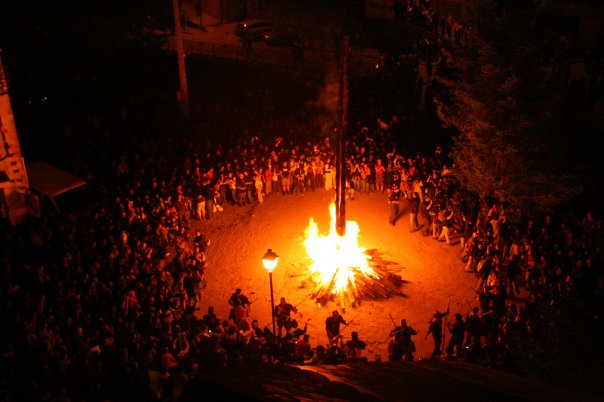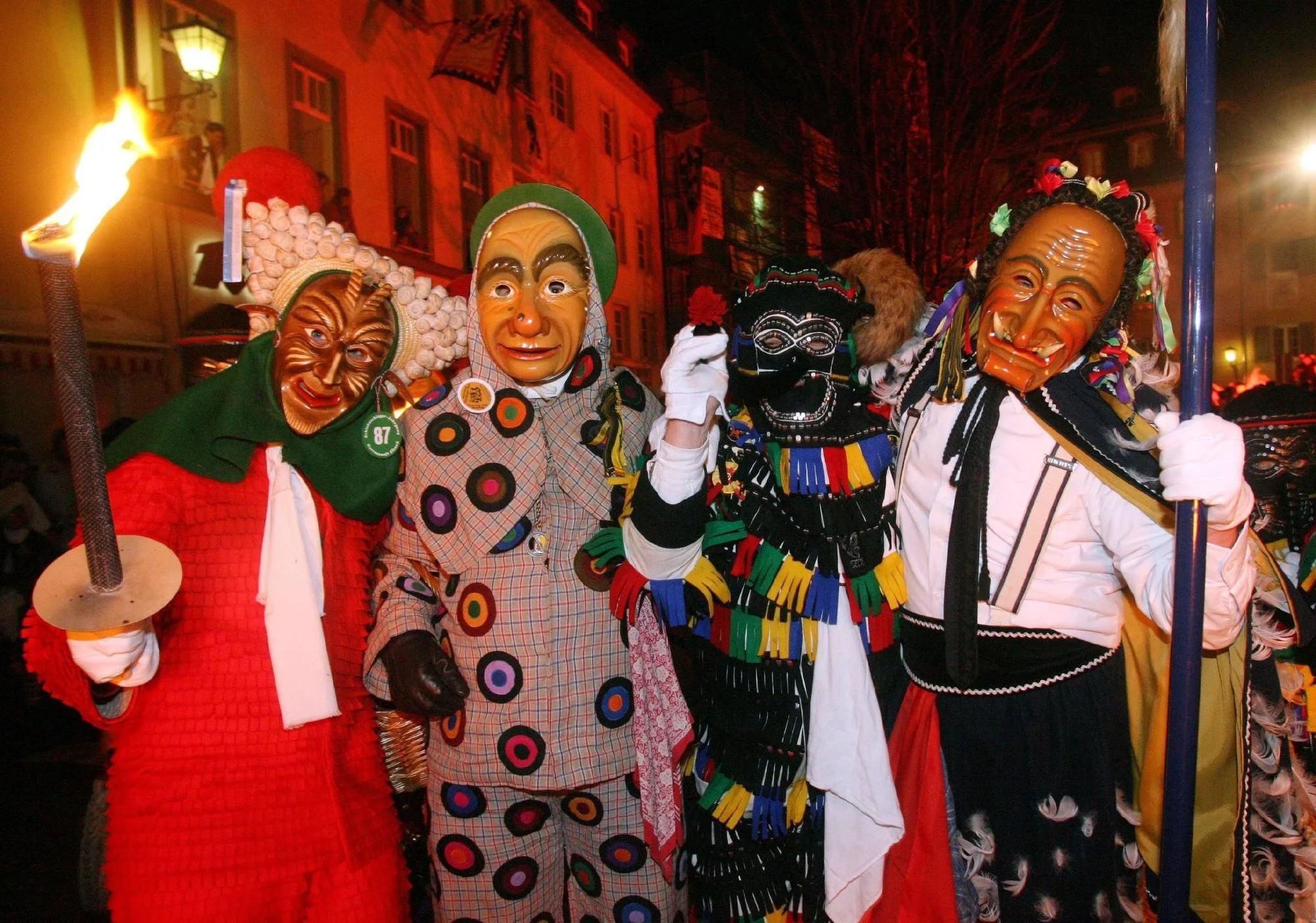Maria always tells me my country doesn't have culture. I’ve regularly bristled at that statement. Everything is culture. Friday night football games are culture. Watermelon and fireworks on the Fourth of July are culture. Johnny Cash is culture and jazz and jambalaya are culture and Paul Bunyan is culture. Hell, one could argue that America’s greatest export is culture. Paco, Maria’s dad, has told me countless times about playing Cowboys and Indians growing up. Paqui, Maria’s mom, crushed on John Travolta in Grease the same way my mom did from across the ocean. You’ll hear American music in every bar in every corner of the world, and see American films and television on every screen. 1 So what the hell, how can this outsider tell me that my country doesn't have culture?
And yet, the longer I live in Europe, the more I understand her argument. There’s a certain flatness, a homogeneity, to American culture. There are regional differences, and I don’t want to downplay those. Several of the examples I cited above are distinctly regional. Every region has its accents and music and food and even mannerisms. I remember feeling some sense of pride when a cashier in Fort Collins, Colorado, correctly identified me as coming from the east coast because of the way I said “y’have a good-un” (she claimed that east coasters say good one as one syllable). I’ve always been one to take pride in what's mine - I’m proud of being from North Carolina (the best state in the country, in case anyone was curious), I'm proud of being from the south. I, as we all do to varying degrees, have long constructed pieces of my identity by extracting pride from the places I came from and the things I could call my own. And in spite of all that, I must admit, it’s a little weird that you can drive 30 hours across the country and find that people still more or less sound the same. It's a little weird that I can stop in Scott City, Kansas, population 4,000, after driving 25 of those hours, communicate clearly with the hotel manager without either of us having to alter our tongue, and have him tell me that the best nearby option for food is the Wendy’s, down Main Street past the high school football stadium. I guess there’s something about that globalization of American culture that has meant that even within America, there’s some sort of a flattening, where because these towns and people came to be in an age where everything was so interconnected, they lost some of the regional oddities that you find so readily throughout the old world.
I’ve spent a lot of time on the American side of things, so I’d like to cite some examples from the old world as proof of how much deeper culture can go. Let’s start with language - aside from the obvious truth that driving 30 hours in one direction in Europe would mean crossing several country borders, you don’t need to go that far to encounter deep linguistic differences. Take my friend Asier, for example. He comes from a town less than 5 hours away, and while he doesn’t speak the local language of Catalan, in addition to his Spanish, he speaks Patués, a slowly dying tongue kept alive by fewer people than the entire population of Scott City. On a trip a couple years back through parts of German speaking Europe, a couple friends and I spent some hours in the Zurich Landesmuseum, where they had an exhibit called “Sprachenland Schweiz”, highlighting both Switzerland's 4 official languages ($5 if you can name all 4 without help), and its countless isolated regional dialects, all in a geographical area less than a third the size of North Carolina. And while I have known people that say they can tell which eastern North Carolina county someone is from based on the way they say certain words, in general our language is far more homogenous, especially with regards to our size. But culture isn’t just language.
It’s also tradition. On a trip this April with my parents to a remote part of the Catalan Pyrenees, my mom became enthralled by a tradition called les Falles del Pirineu, in which locals annually carry town-specific lit torches in processions winding down through the mountains into their villages where they light massive public bonfires.

Photo: turismevallsdaneu
One of my coolest weekends while living in Konstanz came during Narrentag, where a couple friends and I crossed the lake to nearby Überlingen to witness a traditional parade. Four different towns with different traditional carnival clubs would get together every four years in one of the participating towns, meaning this event came to Überlingen only every 16 years, some 5000 traditionally costumed demons beating people with pigs bladders, chanting stories and passing out pretzels.

Photo: schwaebische
I can’t tell you how many times my tourism in this continent has been enhanced by some new bit of local culture I’d never heard of before. I’ve been with Maria for 4 years now, and just two weeks back I learned a new Catalan tradition about a dancing egg. A trip to Bilbao was enhanced by a local parade with traditional, flute-like instruments. A beach day in Badalona was improved by an encounter with a reenactment of a pirate attack on the town. I could go on and on - it's truly constant in a way that's difficult to explain. Everywhere I go on this continent I find that my life is improved by regular brushes against the stubborn underbelly of regional tradition.
So, yes, America has culture. Absolutely it does. And my pride will continue to bristle when I hear otherwise. But the depth of difference in local dishes, local tongues, and local customs is felt more acutely in the old world than the new. I’ll cede that much.
1 In fact, our culture is so intertwined with Hollywood, that I routinely find myself explaining life experiences with “yes, like in the movies”. Even for me, born and raised in the country, it can feel weirdly “like the movies”. After my longest stretch away I remember returning and while everything was obviously familiar - the big cars and the traffic lights and the neighborhoods - it felt so strange that it was real, and felt almost as if I knew it not from memory, but from screens. ↩
Thanks for reading!